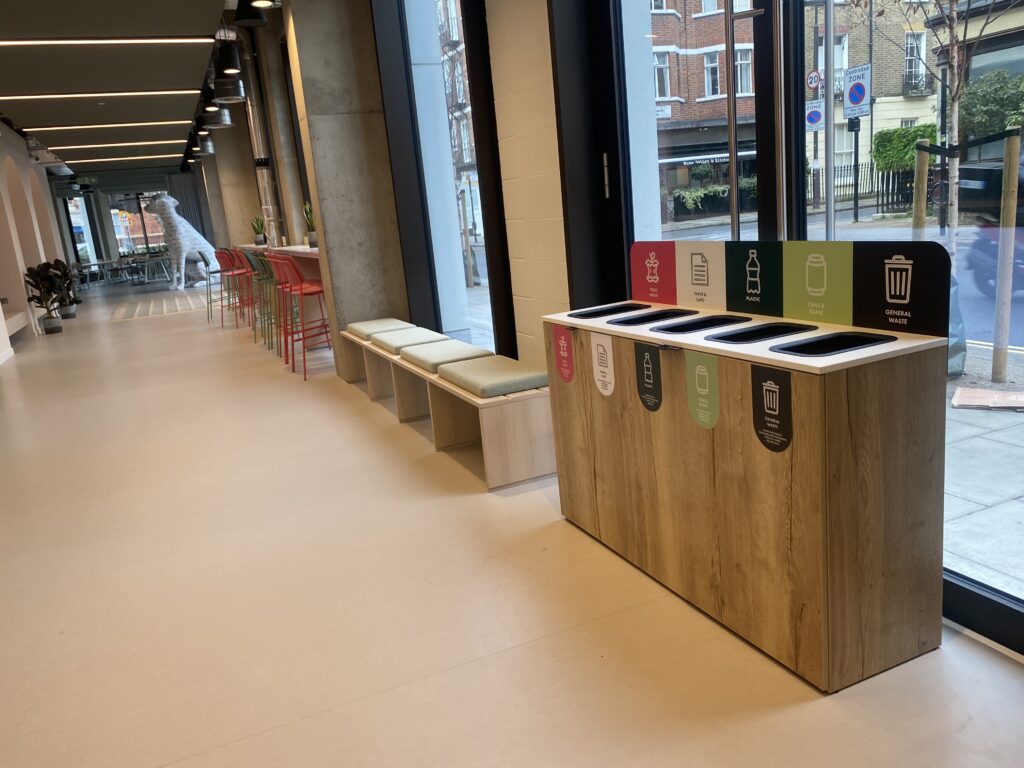Recycling in the UK has become an integral part of sustainable living for both individuals and businesses.
But how much of the waste you carefully sort into recycling bins gets recycled?
What is the Current State of Recycling in the UK?
Despite the good intentions of recycling initiatives, the reality is that not all recyclable materials find their way into a second life.
According to recent studies, many recyclables still end up in landfills due to contamination or inefficiencies in the recycling process.
Although the recycling rate in the UK has improved over the years, challenges still need to be addressed to ensure that a higher percentage of recyclable materials are successfully recycled.
As of 2021, the recycling rate of household in the UK stands at 44.6%. This highlights the need for more concerted efforts to enhance recycling infrastructure and reduce waste, to achieve more sustainable waste management practices.
What Are the Most Common Reasons for Recyclable Items Ending up in Landfills?
1. Collection Difficulties:
Recent studies show that around 40% of household recycling in the UK is contaminated. This contamination usually results from well-intentioned but misinformed recycling attempts. To fight this issue at its source, better education and awareness are crucial.
2. Contamination Concerns:
Each year in the UK, a staggering five million tonnes of recyclable materials are rejected due to contamination. Unfortunately, this leads to a significant loss of valuable resources that could have been reused.
To make the recycling system more efficient, it is crucial to enhance the sorting procedures and decrease the amount of contamination.
3. Sorting Struggles:
Despite technological advancements, the process of sorting materials for recycling is not entirely flawless. According to statistics, sorting facilities in the UK achieve an accuracy rate of around 90%.
Although this is commendable progress, there is room for improvement to ensure more materials are directed towards the recycling stream.
The Importance of Recycling in Businesses

As we examine the state of recycling in the UK, it is crucial to focus on the role of workplaces.
Businesses significantly impact the recycling movement, as they produce much more waste than households, and even if they have already undertaken some steps towards sustainability and recycling, there is always room for improvement.
Fortunately, many UK workplaces are implementing recycling programmes, providing their employees with clear instructions on what can and cannot be recycled.
Sustainability initiatives in business, such as going paperless and using separate waste bins, help reduce contamination and increase the overall recyclability of materials. Companies that prioritise sustainability not only contribute to a healthier planet but also foster a culture of environmental responsibility among their employees.
Unisan’s Contribution to Workplace Recycling

We provide customisable waste sorting solutions that make it easy for businesses to streamline their recycling processes, regardless of the industry.
Unisort recycling bins come equipped with user-friendly features, making it convenient for employees to participate in sustainable practices.
With our commitment to environmentally friendly solutions, workplaces can take a significant step towards achieving their recycling goals and contributing to higher recycling rates in the UK.
In Summary
The UK has made progress in promoting recycling, however, there is still much to be done to ensure that a higher percentage of recyclables are recycled.
By addressing contamination, increasing recycling awareness, and investing in advanced recycling infrastructure, we can move closer to achieving a more sustainable and circular economy.
If you’re a business looking to improve your recycling efforts, talk to one of our experts today.
